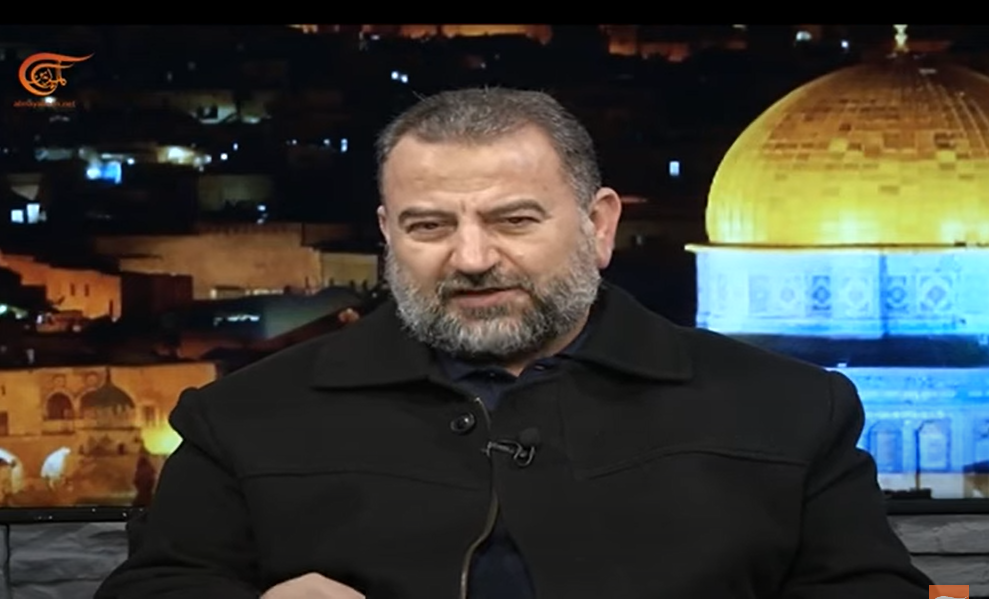The IDF’s successful operation in the Balata refugee camp in the Nablus area on May 22th, during which IDF forces destroyed a laboratory for the production of explosive devices and killed 3 armed terrorists, arouses great anger in the PA and also among the terrorist organizations in the Gaza Strip who see it as a direct continuation of Operation “Shield and Arrow” and the implementation of the policy of targeted assassinations.
The terrorist organizations promise revenge for the IDF’s operation in the Balata refugee camp, but their fear is growing that Israel intends to continue the policy of targeted assassinations, despite the cease-fire agreement with the Islamic Jihad.
Senior officials in Israel flatly reject the claim that Israel has agreed to stop the policy of targeted assassinations that was implemented in the “Shield and Arrow” operation and resulted in the elimination of the entire military elite of the Islamic Jihad.
A senior security official says that the decision by the political echelon to re-adopt the policy of targeted assassinations was a correct decision that has proven itself and will continue because it strengthens Israel’s deterrence against terrorist organizations.
The newspaper “Rai Alyoum” reported on May 22th that the Palestinian factions in the Gaza Strip received warning messages from Arab officials that Israel was planning operations inside and outside the Gaza Strip that would lead to a military escalation and a renewed increase in tensions despite the truce agreement reached through Egyptian mediation.
The messages warned that Israel would not hesitate to assassinate, as soon as possible, the prominent leaders of the Palestinian factions in the Gaza Strip .
The current state of calm in the Gaza Strip is fragile and misleading and several Arab countries have warned the Palestinian factions in the Gaza Strip that Israel cannot be trusted and that the Netanyahu government may drag the factions into escalation to cover up its political crises.
The heads of the terrorist organizations in the Gaza Strip have not yet recovered from the shock that struck them following the assassination of 6 senior leaders of the military wing of the Islamic Jihad by Israel during Operation “Shield and Arrow”, the operational and intelligence superiority of Israel worries them greatly and some of them have gone underground and are taking precautions for fear of being assassinated as well.
The joint command of the Palestinian factions in the Gaza Strip warned Israel that Palestinian blood is a “red line” and that it will not remain silent if Israel carries out new targeted assassinations.
Besides firing rockets at Israel, the terrorist organizations are planning a wave of revenge attacks inside Israel itself as was the case after the assassination of Yahya Ayash, the head of the military wing of Hamas in the West Bank, known as “the Engineer” in 1996.
The decision of the political echelon in Israel to re-adopt the policy of targeted assassinations and apply it to the heads of the military wing of the Islamic Jihad surprised the terrorist organizations who were sure that the Netanyahu government would continue the policy of containment and avoid any scenario that could lead to escalation.
They misjudged their situation and now they are not taking any risks and are preparing for the worst case scenario as far as they are concerned.
The Hamas leadership in the Gaza Strip is now very careful in its public appearances, the leader of Hamas in the Gaza Strip, Yahya Sinwar, has reduced his public appearances to a minimum and the Hamas leadership is preparing new hiding places in case of a renewed escalation with Israel.
Targeted assassinations abroad
Senior security officials emphasize the need for Israel to also adopt targeted assassinations of the heads of terrorist organizations abroad through the Israeli Mossad in order to increase Israeli deterrence.
As far as Israel is concerned there is a top priority for the assassination of Ziad Al-Nakhla, the Secretary General of the Islamic Jihad and Akram Al-Ajouri, the head of the military wing of the Islamic Jihad, the two operate from Beirut or Damascus and are often found on the Beirut-Tehran route.
As far as Hamas is concerned, Israel’s ultimate goal is to assassinate Saleh al-Arouri, who is the head of Hamas’s military wing in the West Bank and the contact person for Hezbollah and Iran.
Al-Arouri is responsible for the terrorist activities in East Jerusalem and Judea and Samaria, he finances and recruits terrorist squads of Hamas to carry out attacks and he worked in coordination with Tarek Izz a-Din, the senior Islamic Jihad leader who was assassinated by Israel during the “Shield and Arrow” operation.
The assassinated of Tarek Izz a-Din will undoubtedly affect the activities of the Islamic Jihad in Judea and Samaria and harm it, therefore it is very important that Israel also strike the head of the snake of Hamas in Judea and Samaria, which is Saleh al-Arouri.
Saleh al-Arouri is located in the al-Dahiya neighborhood in Beirut and is close to Hezbollah Secretary General Hassan Nasrallah. He occasionally travels to Qatar or Turkey and is also responsible for the Hamas branch in Istanbul.




